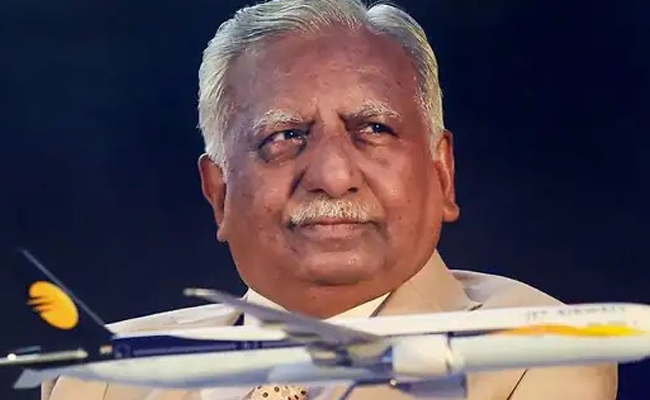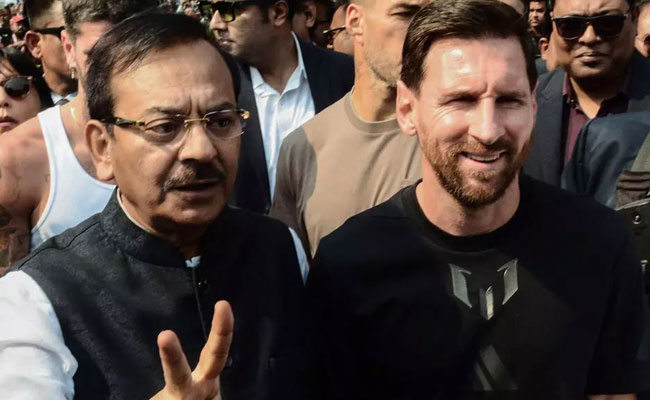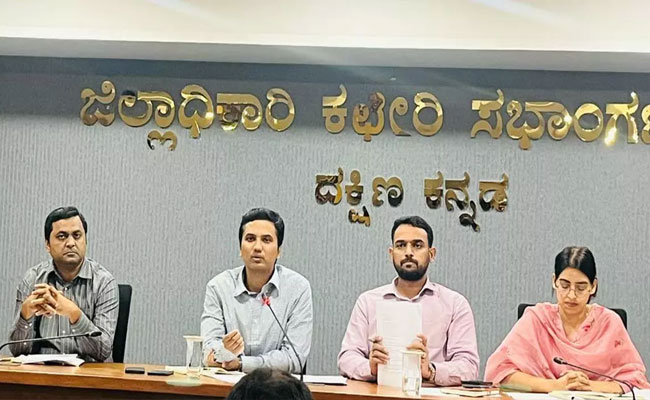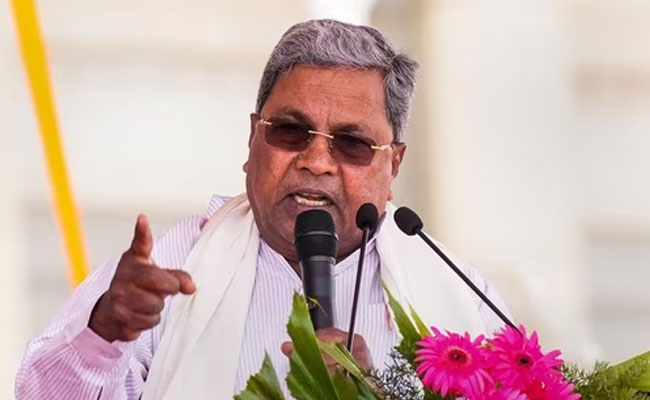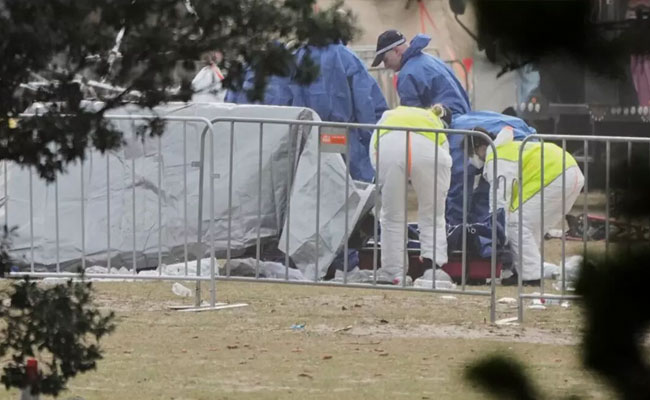Mumbai (PTI): The Enforcement Directorate late Friday night arrested Jet Airways founder Naresh Goyal in a money laundering case linked to an alleged bank fraud of Rs 538 crore at the Canara Bank, official sources said.
He was taken into custody under the Prevention of Money Laundering Act (PMLA) following a long session of questioning at the central agency's office here.
Goyal, 74, is expected to be produced before a special PMLA court in Mumbai on Saturday where the ED will seek his custodial remand, the sources said.
Jet Airways, a full-service carrier, had shut its operations in April, 2019, after running out of cash. Later, Goyal stepped down as the chairperson of the airline.
The money laundering case stems from an FIR of the Central Bureau of Investigation (CBI) against Jet Airways, Goyal, his wife Anita and some former company executives in connection with the alleged Rs 538-crore fraud case at the Canara Bank.
The Enforcement Directorate (ED) had carried out raids against Goyal and others involved in the case in July.
The CBI FIR was registered on the bank's complaint which alleged that it sanctioned credit limits and loans to Jet Airways (India) Ltd (JIL) to the tune of Rs 848.86 crore of which Rs 538.62 crore was outstanding.
The CBI had said the account was declared "fraud" on July 29, 2021.
The bank alleged that the forensic audit of JIL showed that it paid "related companies" Rs 1,410.41 crore out of a total commission expenses, thus siphoning off funds from JIL.
"As per sample agreement of Jet Airways (India) Ltd (JIL), it was noted that the expenses of General Selling Agents (GSA) was to be borne by GSA itself and not by JIL. However, it was observed that JIL has paid various expenses amounting to Rs 403.27 crore which is not in tune with the GSA," the complaint now part of the CBI FIR alleged.
It said personal expenses such as salaries of staff, phone bills and vehicle expenses among others of the Goyal family were paid paid by JIL.
Among other allegations, it surfaced during the forensic audit that funds were also siphoned off through Jet Lite (India) Ltd (JLL) by way of making advance and investing and subsequently writing off of the same by making provision.
JIL diverted the funds for subsidiary JLL in the form of loans and advances and investments extended.
In February, another money laundering case against Goyal, linked to alleged cheating and forgery filed by Mumbai-based Akbar Travels, was quashed by the Bombay High Court after the Maharashtra Police filed a closure report stating it found no substance in the complaint and the dispute seemed to be civil in nature.
As this ED case was based on police FIR, and was the predicate offence for filing a money laundering case, it was declared quashed by the high court.
A division bench of justices Revati Mohite Dere and Prithviraj Chavan quashed the ECIR (Enforcement Case Information Report or the ED equivalent of an FIR) registered on February 20, 2020, and all proceedings against Goyals on the ground of "being illegal and contrary" to law.
Let the Truth be known. If you read VB and like VB, please be a VB Supporter and Help us deliver the Truth to one and all.
New Delhi (PTI): The BJP on Tuesday alleged that West Bengal Chief Minister Mamata Banerjee's accepting Aroop Biswas' resignation as the state sports minister is nothing but a "rear-guard action" to douse public anger over the mismanagement of football icon Lionel Messi's event last week.
BJP co-in-charge for West Bengal Amit Malviya alleged that this is also an "open confession" that the Messi event fiasco was not accidental but a government-manufactured disaster, borne out of the poor governance of Banerjee, her ministers and the state bureaucracy.
Banerjee on Tuesday accepted Biswas' resignation as the sports minister in the wake of the controversy over the mismanagement of football icon Messi's event last week, a senior leader of the ruling TMC said.
Biswas, who had written to the chief minister seeking to be relieved of his responsibilities as sports minister, will continue as a cabinet minister, retaining charge of the power department.
ALSO READ: Slain Australia beach shooting suspect native of Hyderabad: T'gana police
Reacting to the development, Malviya said in a post on X, "TMC Sports Minister Aroop Biswas resigns after the Messi fiasco and Mamata Banerjee accepts it in record time."
"Do not mistake this for accountability; this is nothing but a rear-guard action to douse public anger. anger! This is not 'Raj Dharma'," he added.
The BJP leader alleged that the incident was the outcome of "loot" of common people which is "so synonymous" with the TMC.
The incident was also the outcome of the "shameless VIP culture that TMC thrives on and deep-rooted cronyism promoted by Banerjee," he charged.
Malviya further alleged that Biswas' resignation exposes a "collective failure of Mamata Banerjee, her partisan bureaucracy, and her crony cabinet".
"This is a symbolic sacrifice, a political hoax, soon to be buried under layers of bureaucracy, with no justice, no accountability, and no remorse," the BJP leader said, adding, "No resignation will bring back the time lost, the money wasted, or the stolen chance for football lovers to witness Messi in Kolkata."

